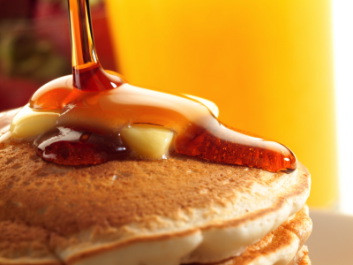

Songwriters are the performance poets of the 21st century
Become a performance poet.
Never has the songwriting market been larger or more diverse. Songwriters are the performance poets of the 21st century, celebrated – or reviled – as heartily as were the Beat poets of the 1950s or the Romantics of the late 18th and early 19th centuries. With an incredible variety of distribution outlets – and the viral marketing effect of the Internet – it pays to know how to write a song. Besides, the pleasure of having written a song knows few equals in creative expression.

As a teenager, Suzanne Vega used a songwriting formula that began with matching guitar chords to her mood.
Start where it feels right.
Writing your own song lyrics doesn’t require anything more than the impetus to say something to the world.
Regardless of fame, fortune, or experience, getting started is often the most difficult part of an artistic undertaking. Singer and songwriter Roseanne Cash writes, "Those niggling questions about the specifics of writing – the order of creation, the source of inspiration, the parsing of individual truth and the wrestling of facts and the divergence of the two, are better left alone and in the realm of mystery, where all creative work forms."
As a teenager, folk-pop music legend Suzanne Vega used a formula that began with matching guitar chords to her mood, then developing a melody, and finally writing the lyrics. She writes, "Each chord told a piece of a story, and by putting the chords together in a certain way you had a musical narrative. Major chords = happy. Minor chords = sad. Sevenths were sort of sexy and bluesy. Augmented and diminished chords were spooky and spiritual."
Songwriter Darrell Brown isn’t picky about where a song begins. He writes, "In general, it doesn’t matter to me if a title is the first thing to come out or the chord progression or any part of the melody or lyrics. I just want anything to come out so I can start writing (or the song can start writing itself)."

Darrell Brown says that songwriters are "emotional spies."
Ideas and inspirations.
Inspirations for lyrics come in many forms. According to Darell Brown, songwriters are "'emotional spies’ - little creative crazies creeping around, sneaking in and out of our own emotions, watching, listening and remembering every bit of conversation with friends, family and every stranger we meet." He writes, "If a song is cowering deep inside someone else’s divorce, engagement, seduction, innocence, sickness, recovery, treachery or resurrection, we long to see every crevice of it revealed in the light, all dressed up in grooves, chords and poetry."

If you choose a title like "Pancakes on Sunday," the images it evokes will serve as the building blocks for your song.
Create a title.
Although you can begin the writing process with any component of a song – title, melody, or lyrics – for the purpose of this exercise, let’s start with the title. After you have this concise summary of what you want your song to be about, you’ll need to answer some questions. Answering questions is where your song begins. For instance, if you chose a title called, "Pancakes on Sunday," the questions you’ll need to answer are, "Who made the pancakes?", "Why on Sundays?", and "Why are the pancakes being made?" Once you answer these questions, images will flood your mind, and these images will serve as the building blocks for your song.
Think in images.
From the "sweet-apple reddening high on the branch," to the "stags stirring the river with their antlers," to "the milk-eyed mender," lasting lyrics have one common craft: they’re built on lasting images. Writing in too many abstractions (words that we cannot "see," such as love, hate, sad, happy, beautiful) is a common mistake made by budding writers. Instead, try to tell someone how much you love them (or hate them) by using images. What does this person do or say that makes you love them? Is it because they make you pancakes every Sunday in the shape of a flower? Then put that into your song. For the moment, don’t concern yourself with rhyming, verses, refrains, or choruses. Just list everything you "see" to shape your free-write into a song.

Singer and songwriter Roseanne Cash says that lyricists aren’t bound by facts.
Feelings over facts.
As you write, don’t worry about how closely your words conform to events in your life. Instead, let your inner poet soar. Roseanne Cash writes, "I used to teach a summer songwriting workshop, and sometimes I would suggest a change of a line or phrase in a song a fledgling writer brought to class and the writer would say, ‘But it didn’t happen that way.’ I would remind him or her that these were songs, not news reports, and if they were bound to just the facts, they should consider science rather than art."
Wail on it.
Not all songs have choruses, but most mainstream songs rely on a strong chorus that people will keep on singing. To give your song extra staying power, create a chorus that really drives your point home. Your chorus should be about four lines, and should be placed between the verses of your song. Your chorus should also contain some or all of the words in your title, to further reinforce your intentions. Go through the free-write you just composed and see if there are any images or ideas that stand out to you as being particularly powerful. Returning to the image of the pancakes, you can summarize the point of your song with a few lines about pancakes on Sunday:
You never brought me diamonds
Or jewels from far away
But you made me want you always
With your pancakes every Sunday
In writing a chorus, you’re giving the song shape by extracting one image that will, when the song is finished, unite all of the other images under a common theme, the theme here being that you love this person even if they couldn’t give you heaps of desirable riches.
Shape it up.
Now that you’ve got your chorus, it’s time to go back through your free-write again and see where the song is. If you feel as though there are multiple themes present in your free-write material, that’s wonderful! However, avoid loading your song with more than one or two main ideas or stories. Also, avoid confusing your listeners with ideas and images that are deeply personal to you, such as inside jokes, nicknames, or unexplained references to things and people. Begin creating an outline for your song – how the story will progress, which words you’d like to see in certain lines, and where your chorus will come in. Remember, your song must mean as much to other people as it means to you, so a second or third set of unbiased eyes as you’re putting your song together can be extremely helpful.
Once you’ve laid out the "bones" of your song, it’s time to lend it the shape that’s going to make it into a sing-able lyric. Since it’s far more difficult to imagine a song that doesn’t rhyme, work with a rhyme scheme for your first attempt. The important part about rhyming is that you should try to be as organic as possible; don’t force words to rhyme by using archaic syntax ("and sad I was made by your falling tears") and don’t try to cram too many syllables into one line for the sake of the rhyme. The best way to start out when learning to write with a rhyme scheme is to give yourself some leniency. Don’t insist on using an abab rhyme scheme. Instead, consider an abac or abcb rhyme scheme. That way, you only need to rhyme one pair of words per four-line stanza. We turn again to the "Pancake Song":
We met in August over wine and old bread (a)
At a cafe torn down in September (b)
So we stayed in on Sundays and you made us pancakes (c)
And I swore I would always remember (b)The syrup I kissed from your chin (d)
And the hiss of the pan on the fire (e)
But I forgot how they tasted, don’t remember your hands (f)
All I know now is hungry desire. (e)

Refining, editing, and polishing are all part of the songwriting process
Polishing a rough gem.
From start to finish, songwriting is a process that is both arduous and a great deal of fun. Keeping your vision for the song in mind and taking the time to listen to some of your favorite artists along the way will keep you inspired through the multiple revisions most songs require. Roseanne Cash writes, "Twenty-five years ago, I would have said that the bursts of inspiration, and the transcendent quality that came with them, were an emotionally superior experience, preferable to the watchmaker concentration required for the detail work of refining, editing and polishing. But the reverse is proving to be true. Like everything else, given enough time and the long perspective, the opposite of those things that we think define us slowly becomes equally valid, and sometimes more potent."
Remember that the success of your song lies in an equal balance of emotion and craft. If your song is all emotion, people may or may not understand what you’re trying to say. If your song is perfectly crafted but lacking in emotion, people will not care what you have to say. As you draft and redraft your blossoming lyrics, make sure to preserve your earlier drafts, as it is often something said pages ago that will end up sparking the next song you write.
![Sing it!]](imagesFolder/istock000000629900xsmall.jpg)
If you play an instrument, you can take a crack at composition
Sing it!
If you already play an instrument – especially the guitar or piano – now is the time to take a crack at composition. If you know your scales and some basic music theory, try composing a melody for your lyrics by imagining the kind of mood you want your song to evoke and going from there. Roseanne Cash writes that the melody can grow out of a song’s lyrics: "I’ve found that the melody is already inherent in the language, and if I pay close enough attention to the roundness of the vowels and the cadence of the words, I can tease the melody out of the words it is already woven into. I have found that continual referral back to the original "feeling tone" of the inspiration, the constant re-touching of that hum and cry, more important than the fireworks of its origin. I have learned to be steady in my course of love, or fear, or loneliness, rather than impulsive in its wasting, either lyrically or emotionally."
If you’re not a musician, try finding a musician who’s willing to help you out, or perhaps spend an evening at an open mic; coffee houses host open mic nights in small and large towns alike. You may just meet someone looking for new material. If you’ve written lyrics that you feel can stand on their own as poetry, then step up to the microphone and proudly read your song aloud. If it’s good enough, no one will miss the guitar. For the musically adept and disinclined alike, there are now many useful computer programs that can help you create back-up tracks for a song (such as Apple’s "Garage Band" or Finale Notepad). Finally, there’s absolutely nothing wrong with keeping your song all to yourself. Anyone can make up a tune, regardless of whether or not they can read music. Sing it in the shower, while you’re cooking dinner, or while you’re cleaning the house. Feel proud of your creation and newfound artistic ability.
The New York Times blog, Measure for Measure pulls back the curtain on the creative process of song writing.
